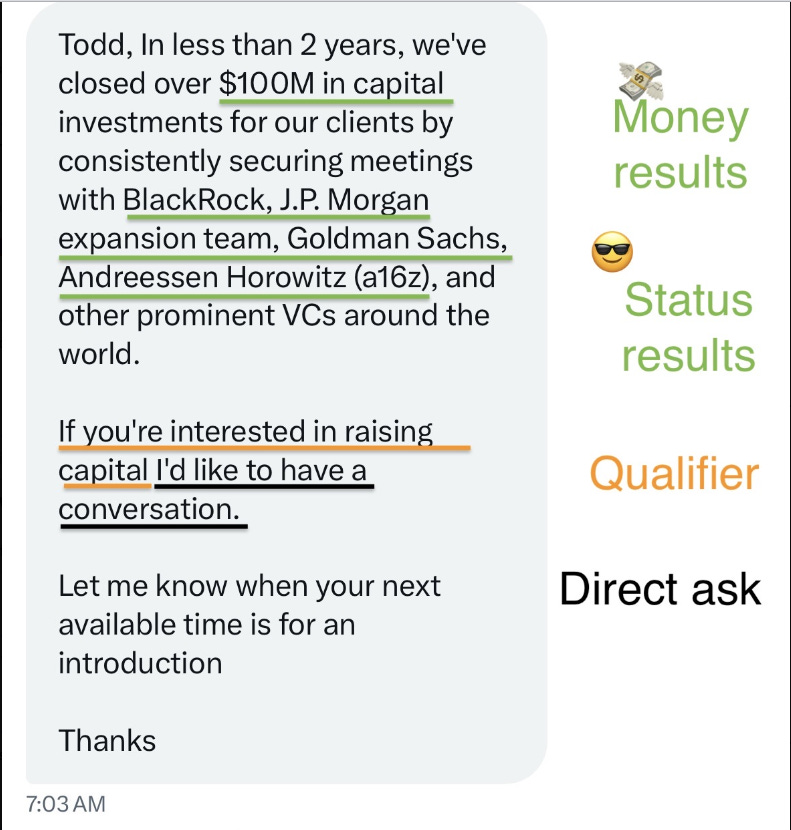at least DMs can teach us something
Most DMs make me sick.
The over-friendliness. The forced joke. The vague promises.
At least when you get physical junk mail, there’s an envelope to scare you off. With DM’s, it’s only one click between the news feed and “HELLO SIR CAN I SHOW—.”
Obnoxious.
Consider this, though: Direct messages, like unsolicited direct mail, sometimes works. In fact, it works enough to justify the cost — both the time and the money — of sending it.
That means, if you look hard enough, you’ll find diamonds hidden in the rough.
Or, in this case, you’ll find great writing hidden in a big, steaming pile of…
Well…
Bad writing.
For the last 6 months or so, I’ve collected a heaping pile of digital junk mail. Let’s take a look at what we can learn from the good, the bad, and the heinous.
Lesson 1 — Be Specific (The Right Way)
Neil Gaiman once said this about writing: “If you’re going to tell your teacher that your dog ate your homework, you’ve got to get the color of the dog right.”
Great writing, just like lying, depends on the details.
This message TRIES to land me with specific details, but the problem is… they’ve provided no context. Do I want to scale past 10k...in what timeframe Week? Month? Day?
I am confused; therefore I will ignore.
Lesson 2 — Be Credible
Here is a question your reader will always ask, though never out loud: Why should I trust you?
If you assume trust, you lose readers.
If you have no reason to be trusted, you lose readers.
This one is tough for the “aww shucks”-ing, polite folks like me. You’ve likely had years of small-town training to keep your head down, your hands in your pockets, and your mouth shut.
If it helps, remember — you’re not trying to promote yourself. You’re trying to be trustworthy.
The former is obnoxious. The latter is required.
Lesson 3 — Be Empathetic
Humans are “no” machines.
I don’t care if you are trying to teach me something, sell me something, or give me something. My mind will reject every new proposal. New means change. Change means pain.
How do you get past “no?”
Answer: predict it, deflect it. The last 3 lines here are stiff-arming “no’s” harder than Derrick Henry running downhill.
This is empathy at its finest.
You can’t help someone with your writing until you understand them first.





